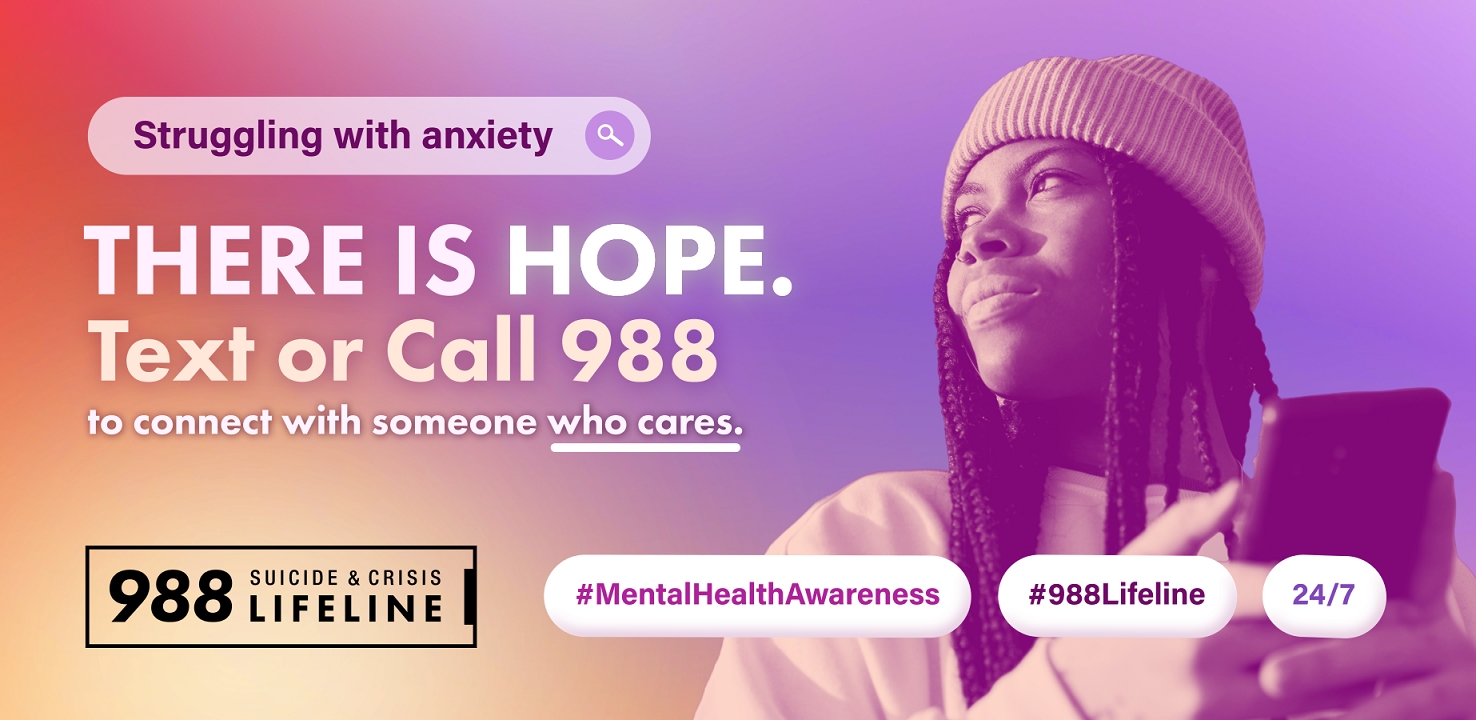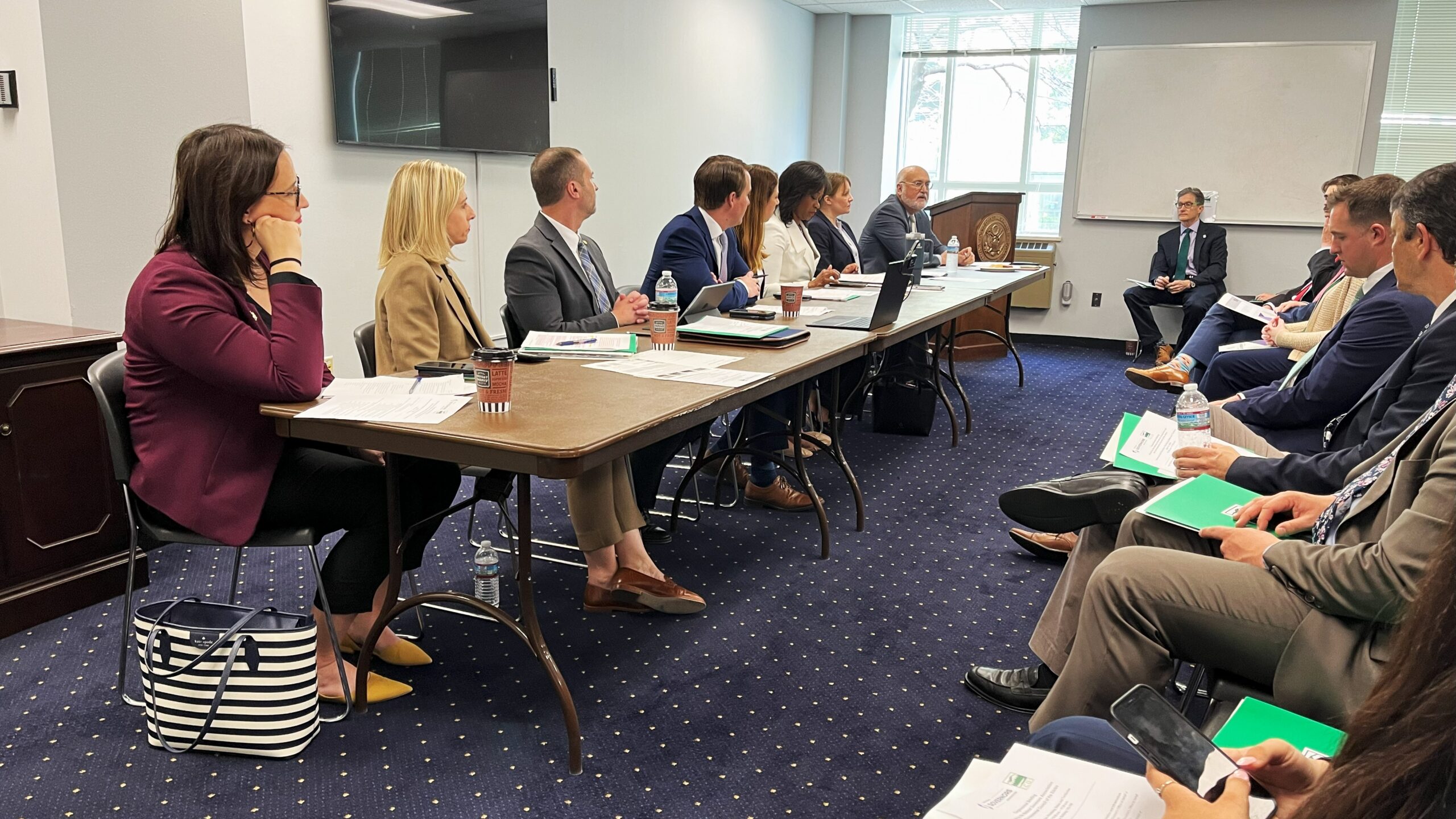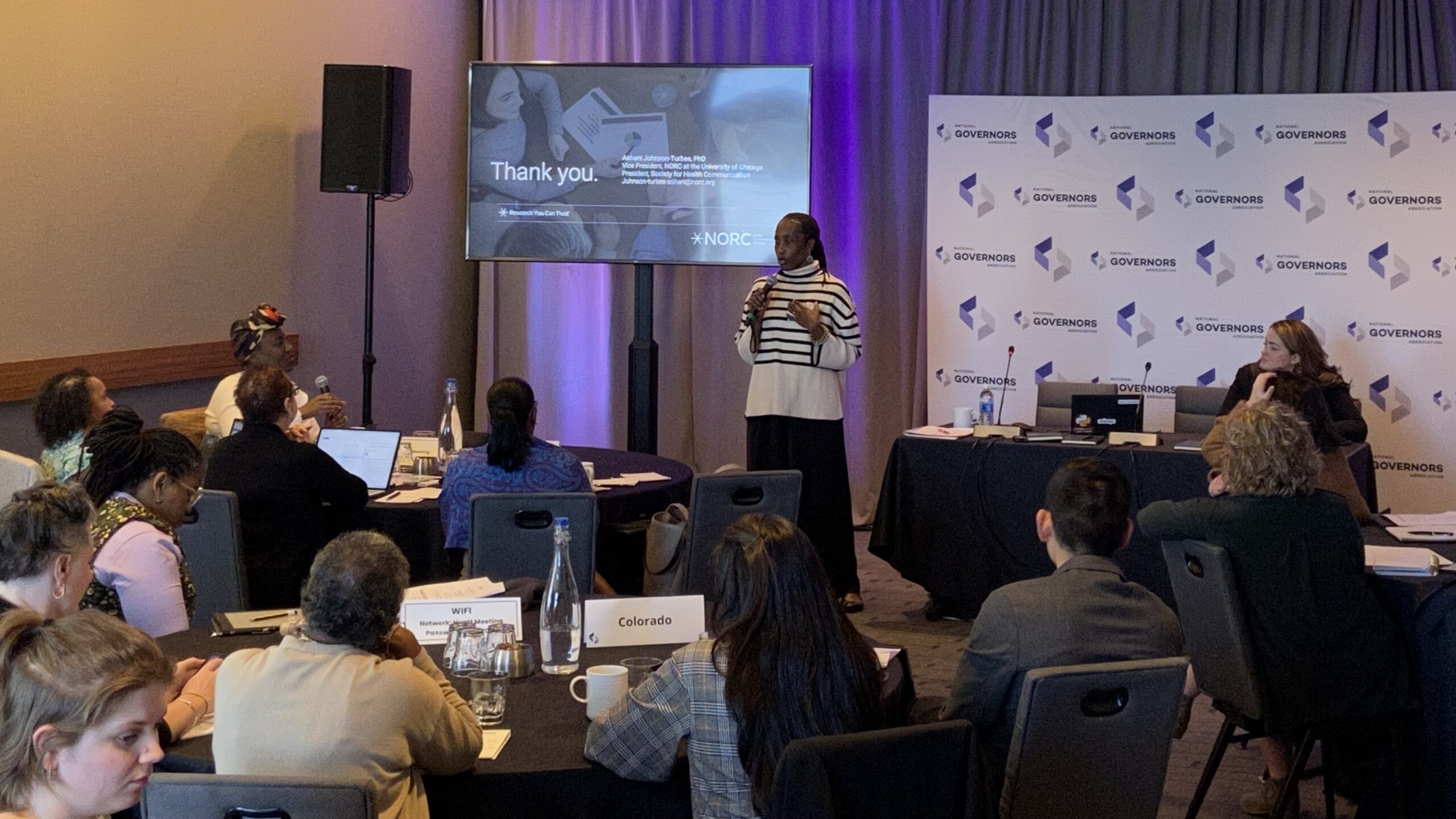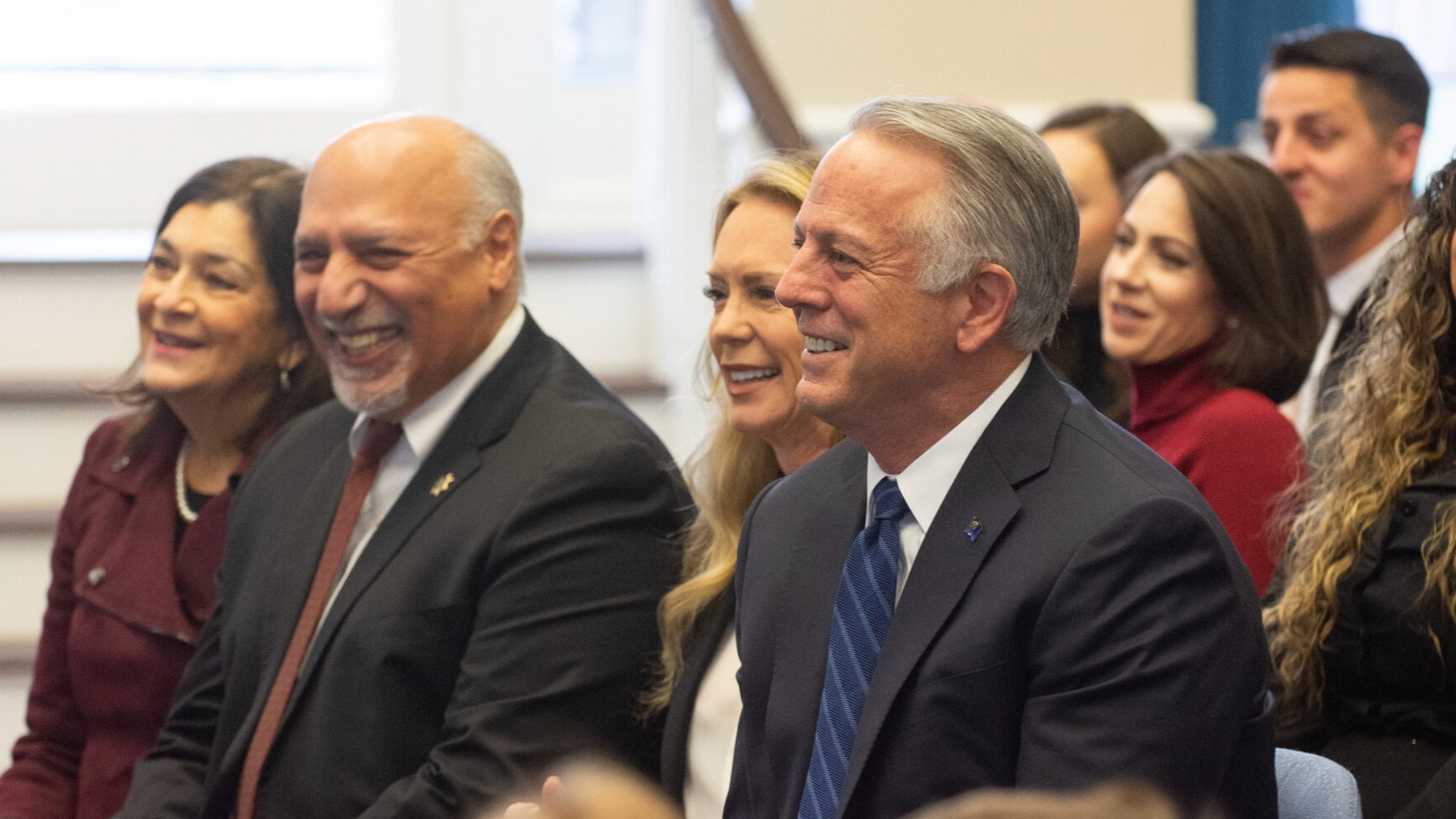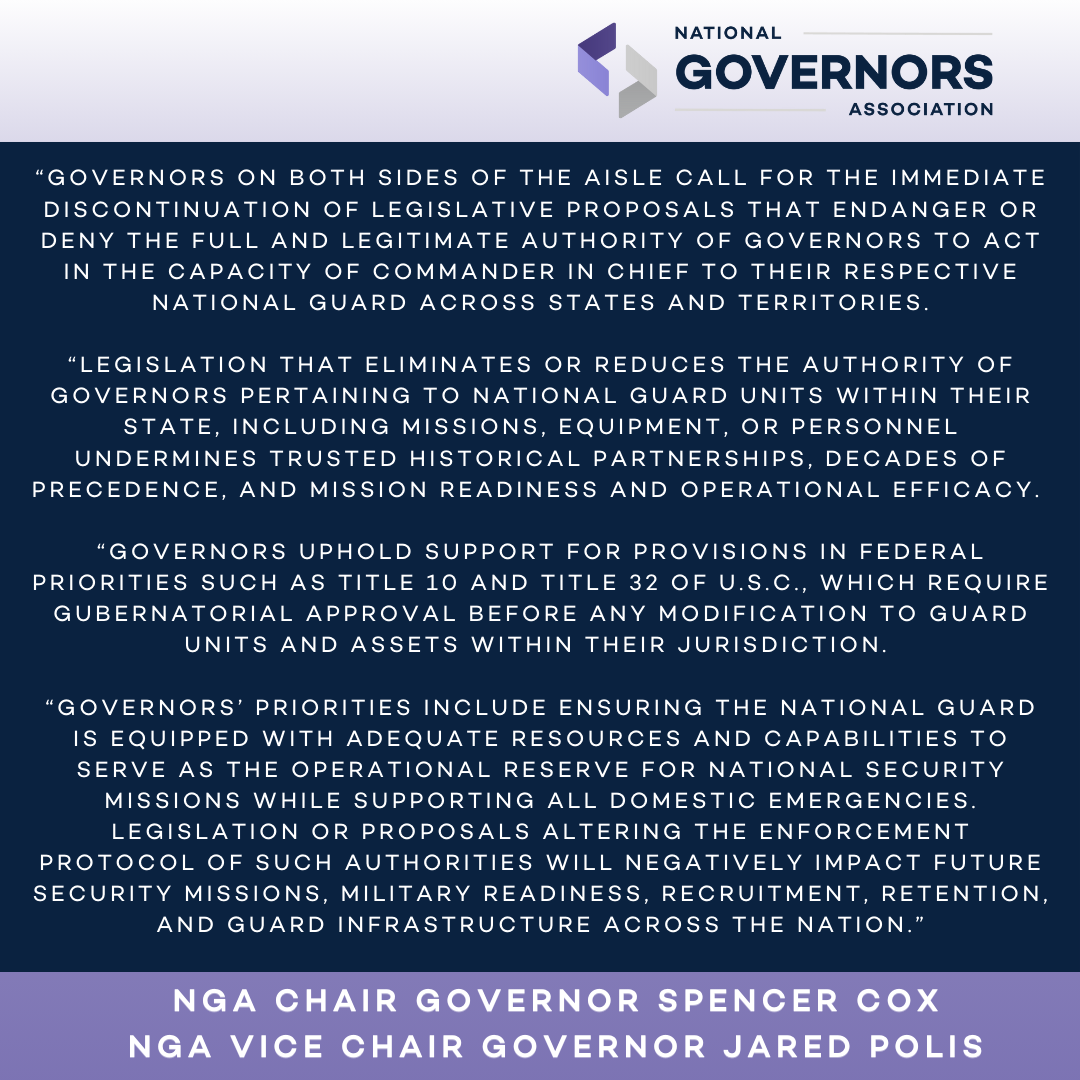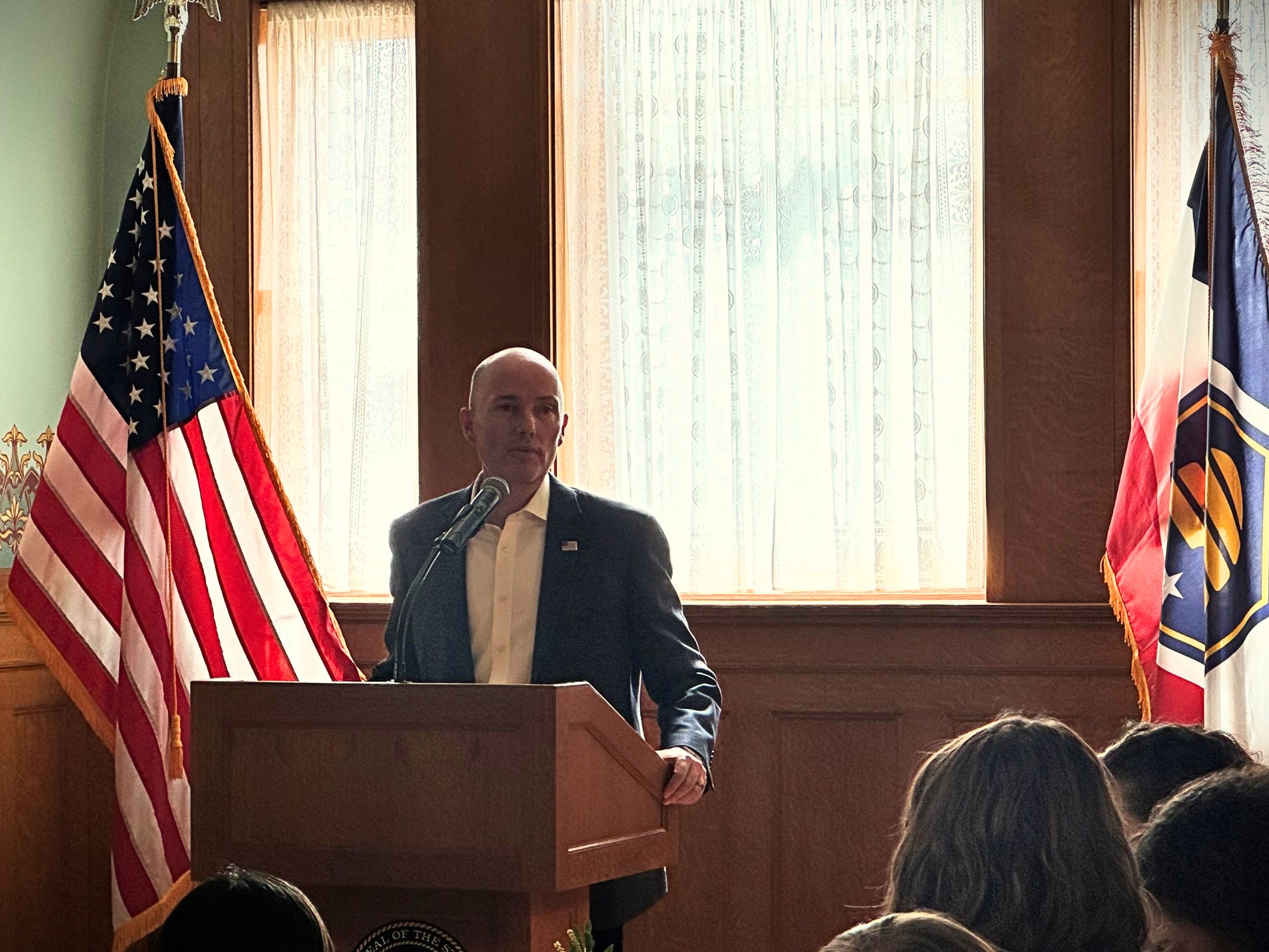This page lists select actions through 31 July 2020 as Governors responded to the novel coronavirus. It is not intended to be exhaustive but is meant to highlight key actions and resources that may inform other states and territories. A full archive of NGA COVID-19 related material can be found here.
NCDHHS coronavirus resource page.
- February 11, 2020—Governor Cooper formalized the state’s ongoing effort to monitor, prepare for, and respond to COVID-19 with a state Novel Coronavirus Task Force.
- March 3, 2020—The state is now allowing coronavirus testing at the NC State Laboratory of Public Health. These tests are coordinated through the Division of Public Health’s Communicable Disease Branch.
- March 10, 2020—Governor Cooper declared a state of emergency, which actives the Emergency Operation Center, and allows for control of cost burdens, protects consumers from price gouging, and makes it easier to purchase necessary medical supplies. The executive order also makes other recommendations around telework schedules, social gatherings, school closures, and high-risk populations, such as those in adult living facilities.
- March 12, 2020—Governor Cooper provided guidance to cancel or postpone gatherings over 100 and to telework if possible.
- March 14, 2020—The Governor issued an executive order to close all K-12 public schools for a minimum of two weeks. The executive order also prohibits mass gatherings of more than 100 people.
- March 16, 2020- The Governor requested that the Small Business Administration grant a disaster declaration for business owners in the state that are facing economic losses due to COVID-19.
- March 17, 2020 – The Governor signed Executive Order 118 which closes sit down services at restaurants and bars, and makes state unemployment benefits more widely available.
- March 19, 2020 – The U.S. Small Business Administration granted the Governor’s request for a disaster declaration for small businesses to apply for a low interest disaster loan.
- March 20, 2020 – The Governor sent a letter to the President requesting the approval of key waivers that will allow the state to adapt federal food and health care programs to better serve North Carolinians.
- March 20, 2020 – The Governor shared a list of funding priorities with the North Carolina Congressional Delegation to help people afford health care, childcare and education needs, while preparing the state for a strong economic recovery.
- March 20, 2020 – The North Carolina Department of Revenue announced an extension of the April 15 tax filing deadline to July 15 for individual, corporate, and franchise taxes.
- March 21, 2020 – The Governor issued an executive order that waives restrictions to increase access to caregivers to provide flexible child care and elder care, provides ways for the Division of Motor Vehicles to enact social distancing protections, and waives some registration requirements to ensure resources can be delivered by truck throughout the state.
- March 23, 2020 – The Governor issued Executive Order 120, which enforces tighter limits on gatherings (50-plus), extends school closures statewide to May 15, closes some businesses that require close social interaction, and limits visitors to long-term care centers.
- March 23, 2020- The Centers for Medicare & Medicaid Services (CMS) approved North Carolina’s request for a Section 1135 Medicaid waiver. The approved waiver enables North Carolina to provide flexibilities in Medicaid provider screening and enrollment, forgo certain pre-admission screening and annual resident review assessments, lift prior authorization requirements, allow for reimbursement facility services in alternative settings, and extend fair hearing and appeals timelines.
- March 24, 2020 – The Governor established a $50 million flexible allotment for public schools to implement remote learning strategies, school nutrition programs, cleaning and sanitizing schools and buses, acquiring protective equipment, and providing child care.
- March 24, 2020 – The Governor requested a major disaster declaration, asking the federal government to provide individual assistance to those affected, including crisis counseling, disaster unemployment assistance and Small Business Administration assistance, among other programs.
- March 24, 2020 – Golden Leaf Foundation announced $15 million in funding for the state’s COVID-19 Rapid Recovery Lending program which supports North Carolina small businesses and family farms as they recover from the economic impact of COVID-19. The loan helps small businesses bridge the gap until federal loans, insurance payouts, and other relief funds are approved, or businesses have time to recover.
- March 25, 2020–The North Carolina Department of Health and Human Services issued emergency child care operations and finance guidelines requiring emergency centers to register with the state and offering bonus pay to child care teachers.
- March 26, 2020 – The Governor announced the state received a federal disaster declaration, which allows local governments, state agencies and eligible non-profits to be reimbursed for costs incurred by response efforts.
- March 27, 2020 – The Governor announced that parents who need food assistance for their children can text a hotline to locate nearby meal sites.
- March 27, 2020 – The Governor announced a statewide stay at home order in effect until April 29, providing for essential businesses to continue to operate while prioritizing social distancing measures.
- March 29, 2020 – The Governor announced that the first payments for the approximately 270,000 unemployment claims related to COVID-19 will be issued within the forthcoming week.
- March 30, 2020 – The Governor issued Executive Order No. 122 allowing schools and local governments to request additional property, including computers owned by the state, to help bridge outstanding resource gaps. The Order also provides transfer or donation of personal protective equipment that state government may have and not need.
- March 31, 2020 – The Governor issued Executive Order No. 124 prohibiting utilities from disconnecting people who are unable to pay their bills due to economic distress. The Order directs utilities to give residential customers at least six months to pay outstanding bills and prohibits them from collecting fees, penalties or interest or late payment.
- April 7, 2020 – The Governor issued an executive order that creates more flexibility in law enforcement training schedules so that people training for new positions can pause their trainings to isolate or self-quarantine and resume at a later date.
- April 8, 2020 – The Governor announced that FEMA approved the state’s request to provide housing alternatives, such as hotels, motels, and dormitories, for North Carolinians with unstable housing that may need to quarantine in response to or are at risk for severe COVID-19 related illness. The emergency non-congregate sheltering will provide more than 16,500 units of individual housing.
- April 8, 2020 – The Governor issued an executive order, which expands the pool of health care workers and orders essential childcare services for workers responding to the crisis.
- April 9, 2020 – The Governor issued an executive order strengthening social distancing requirements and streamlining benefits for the recently unemployed. Specifically, the order:
- Requires retail stores that are still operating to implement additional social distancing policies to make shopping safer for customers and employees;
- Mandates COVID-19 guidelines for nursing facilities, and recommends other long-term care facilities adopt the same approach; and,
- Implements changes intended to accelerate certain benefit payments to those who are recently unemployed.
- April 15, 2020 – The Governor shared North Carolina’s vision of a path forward for eventually easing certain social distancing policies by leveraging mass testing, robust contact tracing, and epidemiologic modeling to inform decision-making.
- April 17, 2020 – The Governor announced that the North Carolina Department of Health and Human Services is collaborating with the University of North Carolina at Chapel Hill, Duke University and East Carolina University to assess changes in COVID-19 prevalence in Chatham, Pitt and Cabarrus counties.
- April 20, 2020 – The Governor announced the state has been approved for the Pandemic Electronic Benefit Transfer (P-EBT) program, to provide additional food and benefits to more than 800,000 children across the state.
- April 23, 2020 – The Governor issued an executive order extending the stay-at-home order to May 8.
- April 23, 2020 – The Governor announced the state’s plan to begin reopening the economy through a three-phased approach that centers on the following metrics:
- Sustained leveling or decreased trajectory in COVID-like Illness (CLI) surveillance over 14 days;
- Sustained leveling or decreased trajectory of lab-confirmed cases over 14 days;
- Sustained leveling or decreased trajectory in percent of tests returning positive over 14 days; and
- Sustained leveling or decreased trajectory in hospitalizations over 14 days.
- April 24, 2020 – The Governor announced that K-12 public schools will continue remote learning through the end of the 2019-2020 school year.
- April 24, 2020 – The Governor announced a partnership to equip school buses with Wi-Fi.
- April 24, 2020 – The Governor released a recommended budget plan to invest $1.4 billion in emergency funds to help North Carolina response and recovery activities, including $75 million to support testing, tracing and trends analysis and secure the personal protective equipment needed to help the state move into Phase 1 of easing restrictions.
- April 30, 2020 – The Governor and the Secretary for the North Carolina Department of Health and Human Services provided a public update on where North Carolina stands on key metrics to safely transition into Phase 1.
- May 1, 2020 – The Governor proclaimed May 3 – 9 Hurricane Preparedness Week, emphasizing the importance of considering how COVID-19 might alter the typical preparedness process for hurricane season.
- May 4, 2020 – The Governor signed two relief bills into law: Senate Bill 704 and House Bill 1043. The relief package includes almost $1.6 billion in relief measures for critical expenditures related to public health and safety, educational needs, small business assistance, and continuity of state government operations.
- May 5, 2020 – The Governor signed an executive order to modify North Carolina’s Stay at Home order to transition to Phase 1 of slowly easing certain COVID-19 restrictions effective May 8.
- May 6, 2020 – The Governor announced appointments to the DRIVE Task Force, which is focused on improving equity and inclusion in education and will submit a report to the Governor with recommendations to reach that goal.
- May 6, 2020 – The Governor announced additional school buses will bring internet access to communities without it to help more North Carolina students connect to school online.
- May 12, 2020 – The Governor announced the state’s Task Force for Emergency Repurposing of Manufacturing, established in March, has worked with over 300 North Carolina companies to produce critical medical equipment and supplies.
- May 12, 2020 – The Governor issued an executive order providing additional regulatory flexibility to ensure capacity in the state’s health care system and improve its ability to effectively respond to ongoing threats.
- May 14, 2020 – The Governor shared an update on the state’s gating criteria, highlighting the data and trends show that the state remains stable nearly one week into Phase 1.
- May 19, 2020 – The Governor sent a letter to the leaders of the Golden L.E.A.F. Foundation, responsible for distribution of $125 million in loans for struggling businesses, encouraging them to ensure women and minority-owned businesses receive an equitable portion of recently approved COVID-19 relief funding.
- May 20, 2020 – The Governor announced the state will move into Safer At Home Phase 2 of reopening on May 22.
- May 22, 2020 – The Governor and the Secretary of the North Carolina Department of Health and Human Services, joined by the North Carolina Restaurant and Lodging Association (NCRLA) President, announced Count on Me NC. The resource offers free online training to help restaurants, hotels, and other businesses learn how to best protect customers and employees from COVID-19.
- May 26, 2020 – The Governor announced $85.4 million in federal funds provided for COVID-19 relief to counties will be disbursed this week.
- May 29, 2020 – The Governor announced the state received a $6 million federal grant to support jobs and workforce training to help address the impacts of the COVID-19 pandemic.
- May 30, 2020 – The Governor signed an executive order to extend the prohibition of utility shut-offs and implement a moratorium on evictions.
- May 31, 2020 – The Governor encouraged all North Carolinians to honor June 1 as a Day of Mourning to grieve the 100,000 people in America, including almost 1,000 North Carolinians, who have lost their lives to COVID-19.
- June 8, 2020 – The Governor announced that DHHS released new guidelines which lays out a comprehensive set of baseline health practices that public schools should follow to minimize risk of exposure to the virus, and provides recommendations of practices that schools should implement to minimize spread of COVID-19 while allowing in-person teaching to resume.
- June 15, 2020 – The Governor proclaimed June 15 as Healthcare Heroes Day to recognize the daily sacrifices made by healthcare professionals, particularly during the COVID-19 pandemic.
- June 16, 2020 – The North Carolina Department of Health and Human Services allocated $35 million in federal funding to local health departments to support the COVID-19 response.
- June 24, 2020 – The Governor announced the state will remain in Safer at Home Phase 2 for three more weeks. Additionally, the Governor announced that face coverings must be worn when people are in public places as officials seek to stabilize concerning trends of increasing viral spread.
- June 28, 2020 – The Governor signed the Education Omnibus (SB113) into law, making modifications to the 2020-2021 school calendar requirements to expand the use of remote learning days and allow modifications for single-track year-round schools, among other things.
- July 1, 2020 – The Governor announced the expansion of Hometown Strong, an effort to forge partnerships between rural communities and state government, to expand its focus to help all 80 rural North Carolina counties respond to COVID-19 and strengthen local economies.
- July 1, 2020 – The Governor shared that North Carolina will continue working with schools, teachers, parents, and health experts to ensure that plans for school this coming year will protect everybody, especially those at high-risk.
- July 9, 2020 – The Governor announced that 80 North Carolina college students were matched with local nonprofits to assist with ongoing COVID-19 response activities.
- July 14, 2020 – The Governor announced schools will open for in-person instruction under an updated Plan B that requires face coverings for all K-12 students, fewer children in the classroom, measures to ensure social distancing for everyone in the building, and other safety protocols.
- July 16, 2020 – The Governor announced that the North Carolina Department of Health and Human Services launched new online tools to assist Spanish-speaking North Carolinians to determine if they should consider being tested for COVID-19 and help individuals monitor their symptoms if they have testing positive for or been exposed to COVID-19.
- July 27, 2020 – The North Carolina Department of Health and Human Services announced 39 upcoming community testing events as part of the initiative to increase access to free COVID-19 testing for African-American, LatinX/Hispanic, and American Indian communities that currently have limited testing sites.
- July 28, 2020 – The Governor issued an executive order stopping the sale of alcoholic drinks in restaurants, breweries, wineries, and distilleries at 11:00 PM, effective July 31.



